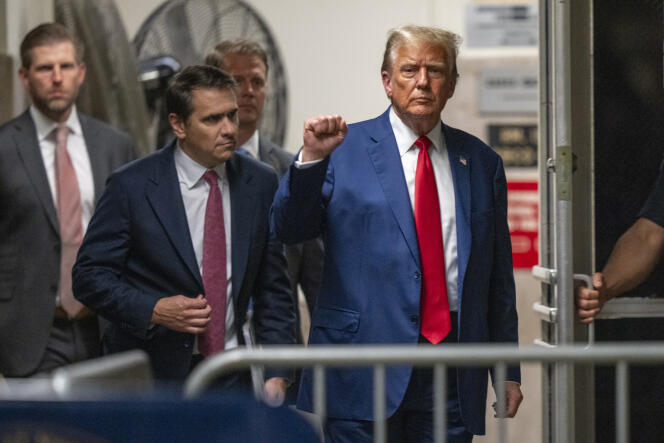


Accounting scandals do not make the most interesting newspaper headlines as those of political and sex scandals, yet this is what forms the backbone of Donald Trump's trial underway in New York, where the former president is the only defendant. The prosecution must prove his crime of falsifying documents to conceal the hush money payment of $130,000 to adult movie star Stormy Daniels. On Monday, May 6, the 12 jurors were invited to a long and arduous remedial course on the financial management of the family-run Trump Organization.
The day's two witnesses were two employees paying for their legal representation. Jeffrey McConney, who worked as the organization's corporate controller, was questioned at length about the monthly reimbursements made in 2017 to Michael Cohen, who had been Trump's lawyer. It was Cohen – the most eagerly awaited witness in this trial, which has become, over the days, an inexhaustible subject of ridicule – who had advanced the money to Daniels just a few days before the November 2016 presidential election. A major last-minute scandal had to be avoided at all costs.
After Trump took office in January, a monthly repayment had been arranged with Daniels, involving 12 payments of $35,000, or $420,000 in total, over 2017. The sum also included taxes payable and a bonus. McConney had validated the transaction at the behest of the Trump Organization's CFO Allen Weisselberg. Unfortunately, Weisselberg is serving a five-month prison sentence and was unable to appear.
Deborah Tarasoff, a former employee of the Trump Organization's accounting department, gave a purely factual testimony. She confirmed the nature and origin of the documents presented by the prosecution, in particular the checks signed by Trump, who was the only one able to sign the ones issued from his personal account. After he moved into the White House, the documents had to be FedExed to him for signature. For accounting purposes, Tarasoff was asked to record these expenses as "legal adviser expenses." This is the crux of the prosecution's case.
The first two weeks of the trial had been colorful. The goal of prosecutor Alvin Bragg's team was to prove the existence of a conspiracy starting in the summer of 2015, aimed at influencing the course of the presidential election by withholding information from voters. It was a fascinating yet sordid plunge into a mediocre swamp, a succession of repeated infidelities, by a powerful man wanting to plug his reputation with banknotes to preserve his chances in politics ahead of the 2016 election.
You have 47.16% of this article left to read. The rest is for subscribers only.
